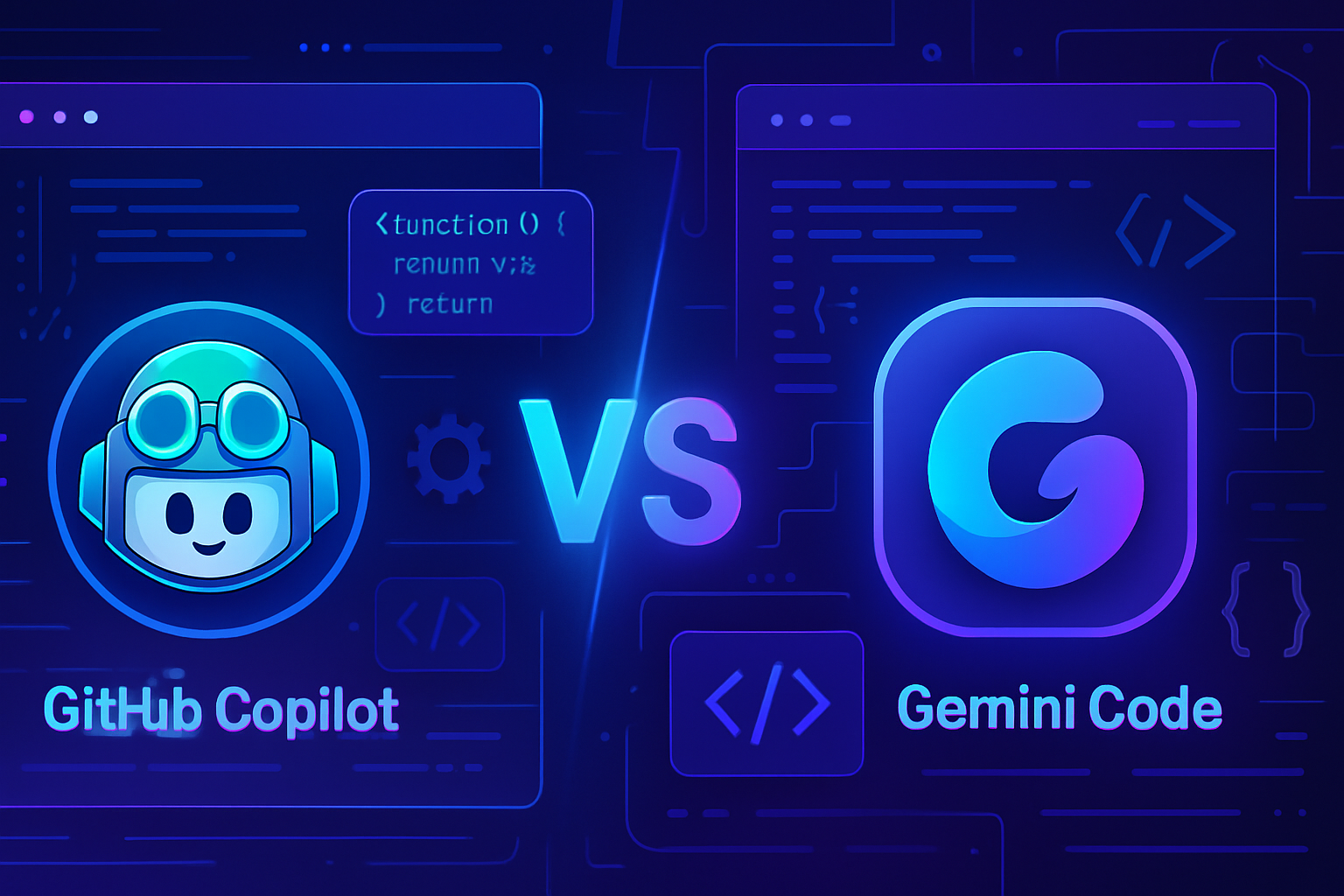The quest for optimal programming assistance challenges developers. Faced with the dizzying advances of artificial intelligence, the choice is presented between GitHub Copilot and Gemini Code Assist. Their distinct capabilities redefine efficiency and creativity in software development. In a world where code becomes complex, the relevance of the chosen tool proves to be decisive.
Compatibility with various IDEs is a major issue. User experience fluctuates based on integrated environments. The underlying algorithm directly impacts the quality of suggestions. An informed choice requires evaluating the specific needs of each team or developer.
Determining the most suitable assistant requires deep reflection on your technical requirements and daily practices.
Comparison of AI Code Assistants
GitHub Copilot and Gemini Code Assist both marked the year 2025 by becoming essential tools for developers. Their intensive use allows for optimizing the productivity of development teams. This comparison highlights the significant distinctions between these tools.
Compatibility with Development Environments (IDEs)
The choice of an AI assistant partially depends on its compatibility with IDEs. GitHub Copilot stands out for its broad reach, working with Visual Studio Code, Visual Studio IDE, as well as all JetBrains IDEs, supporting various other environments like Vim, Neovim, Eclipse, and Xcode.
In contrast, Gemini Code Assist proves to be more limited. It natively integrates into Google’s tool ecosystem, including Cloud Shell Editor and Android Studio. Although its use is possible with Visual Studio Code and JetBrains IDEs, this makes it less versatile compared to GitHub Copilot.
Features and Performance
Regarding features, Gemini Code Assist leverages active code and open files in the IDE to generate code blocks. It also enables autocomplete and chat queries, while citing the sources of the used code.
GitHub Copilot, for its part, also offers autocomplete and code block generation. Its integrated chat poses questions and provides explanations about the code. A unique feature lies in the ability to modify multiple files simultaneously, while filtering the generated code to use only new content.
Underlying AI Models
The determining factor between the two offerings lies in the engine model. Gemini Code Assist relies on the Gemini family from DeepMind. Although Google does not disclose a specific version, it is likely that the model used is Gemini 2.5 Pro, known for its ability to handle one million tokens of context. This specificity makes it a preferred option for heavy projects.
GitHub Copilot, on the other hand, has evolved into GPT-4o Copilot, with the ability to solicit different models such as the GPT-4 family and the Claude family from Anthropic. This wider choice, while effective, does not reach the same level offered by Gemini’s capabilities.
Pricing and Options
The pricing strategies of GitHub and Google offer various options. Google presents three plans, including Gemini Code Assist for individuals (free), limiting to 6,000 queries per day. The Standard plan, at $19 per month, offers unlimited access. For companies, Gemini Code Assist Enterprise is set at $45 per month per user, including customization features.
GitHub offers a more complex pricing structure. Its free plan allows for 2,000 completions per month with a limited number of premium queries. The Pro and Pro+ plans provide unlimited completions and priority access to advanced AI. For enterprise needs, GitHub Copilot Business and Enterprise offer features tailored to stricter environments.
Choosing the Ideal Assistant
The selection between GitHub Copilot and Gemini Code Assist cannot be made based on superiority, but rather on individual or organizational needs. For independent developers, Gemini Code Assist presents an appealing option with its robust free offering and high-performing model.
For companies, the dilemma persists. Gemini provides impressive processing capability, while GitHub excels in its broad compatibility with various IDEs and a diverse range of models. Final decisions thus depend on technological preferences and the infrastructure already in place within each team.
For additional information on the impact of these tools, consult articles on the best internal portals for developers and on learning intelligence and its challenges.
Common FAQs about GitHub Copilot and Gemini Code Assist
Which AI assistant is most compatible with different development environments?
GitHub Copilot is generally more compatible, as it supports a wide range of IDEs, including Visual Studio Code, Visual Studio, Eclipse, and several JetBrains IDEs, while Gemini Code Assist is mainly limited to the Google ecosystem and a few other IDEs.
What are the advantages of Gemini Code Assist over GitHub Copilot?
Gemini Code Assist utilizes a state-of-the-art code generation model, known for its ability to handle up to a million tokens of context, thus providing better understanding for large-scale projects.
How does the pricing of GitHub Copilot compare to that of Gemini Code Assist?
Both tools offer accessible pricing, but the structures differ. GitHub Copilot provides several plans, while Gemini Code Assist has more standard options suited for different types of users, ranging from individuals to businesses.
Does GitHub Copilot use generated code to train its AI?
No, the code generated by GitHub Copilot is not used to train its model, ensuring that your code remains confidential and is not used for other purposes.
Does Gemini Code Assist provide chat features similar to those of GitHub Copilot?
Yes, Gemini Code Assist has a chat feature allowing users to ask questions and get explanations about the code, similar to that offered by GitHub Copilot.
Which is the best option for team and enterprise development?
GitHub Copilot might be more suitable for companies due to its wide compatibility with IDEs and team management features. However, Gemini Code Assist can provide superior performance due to its advanced generation model.
How to choose between GitHub Copilot and Gemini Code Assist based on my usage?
If you are an individual developer or a casual user, Gemini Code Assist could be a wise choice due to its free version. Teams with diverse needs might prefer GitHub Copilot for its versatility.






